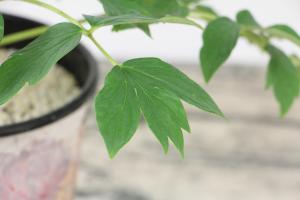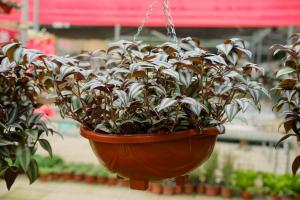Are glazed pots bad for plants?
Glazed pots are popular for their beautiful designs and colorful finishes. They are often used as decorative pieces in gardens, patios, and indoor spaces. However, the question remains, are glazed pots bad for plants? The answer is not simple, and it largely depends on the type of plants you are growing.
The benefits of glazed pots
Glazed pots can have several advantages that make them desirable for plant growth. One significant benefit of using glazed pots is their ability to retain moisture. The glaze creates a barrier over the pottery, which helps to prevent water from evaporating quickly. This feature is especially useful for plants that require consistent moisture levels, such as ferns and tropical plants.
Another benefit of using glazed pots is their durability. When properly cared for, glazed pots can last for several years. Additionally, the glazed finish makes them less prone to cracking and breaking, which can be a significant advantage for outdoor pots that are exposed to the elements.
The potential drawbacks of glazed pots
While glazed pots have several benefits for plant growth, they can also have potential drawbacks. One significant concern with glazed pots is their ability to trap excess moisture. If a plant is overwatered, the water can become trapped in the pot, which can lead to root rot and other fungal diseases that can harm the plant. Therefore, it is important to monitor the soil moisture levels and avoid overwatering when using glazed pots.
Another potential drawback of using glazed pots is their ability to retain heat. The glaze can make the pot absorb and retain heat, which can lead to the soil temperature becoming too high. This can be detrimental for some plants, as it can cause the soil to dry out quickly and stress the plant, leading to stunted growth or death.
Choosing the right glazed pot for your plant
When choosing a glazed pot for your plant, it is important to consider the type of plant you are growing and its specific needs. Plants that require consistent moisture levels can benefit from glazed pots, as they help to retain moisture. However, plants that are prone to overwatering or those that require good drainage may not be suitable for glazed pots.
Additonally, it is important to choose a glazed pot that is the right size for your plant. A pot that is too small can restrict the plant's growth, and a pot that is too large can cause excess moisture retention and other issues.
Caring for glazed pots
To ensure that your glazed pots remain in good condition and do not harm your plants, it is essential to care for them properly. One important aspect of caring for glazed pots is to monitor soil moisture levels, as overwatering can be a significant issue. Additionally, avoid placing glazed pots in direct sunlight, as this can cause the soil temperature to increase and harm the plant.
When cleaning your glazed pots, use a gentle dish soap solution and avoid using abrasive materials, which can damage the glaze. Rinse the pot thoroughly and allow it to dry completely before planting a new plant. If you notice any cracks or damage to the glaze, it may be time to replace the pot.
Conclusion
In conclusion, glazed pots can be beneficial for some plants, but they can also have potential drawbacks. Choosing the right pot for your plant and monitoring soil moisture levels can help to ensure that your plants thrive in a glazed pot. Proper care and maintenance of the pot can also help to prevent harm to your plants and extend the life of the pot.

 how many times do yo...
how many times do yo... how many planted tre...
how many planted tre... how many pine trees ...
how many pine trees ... how many pecan trees...
how many pecan trees... how many plants comp...
how many plants comp... how many plants can ...
how many plants can ... how many plants and ...
how many plants and ... how many pepper plan...
how many pepper plan...































